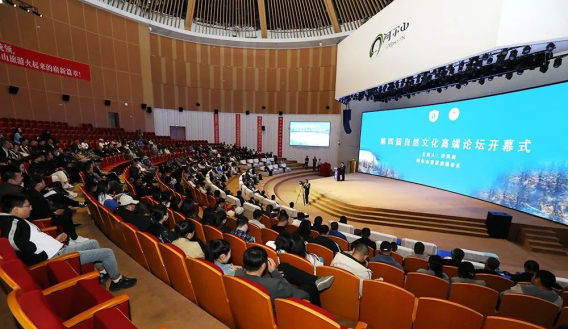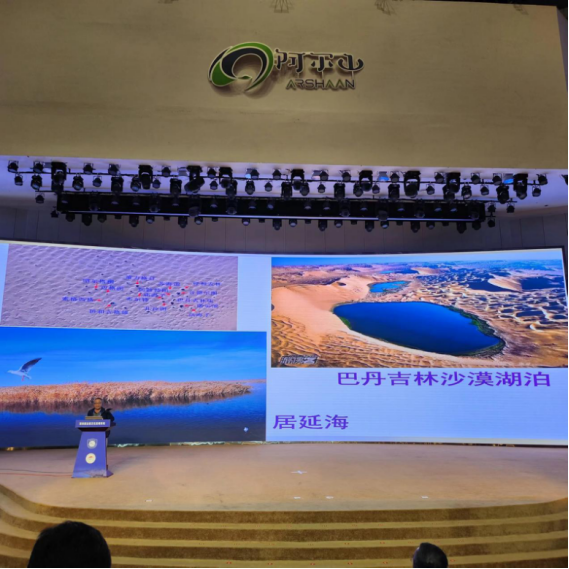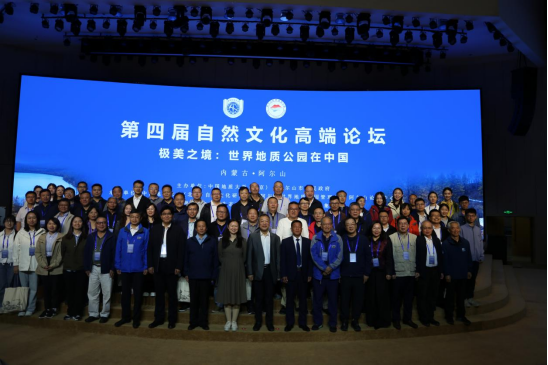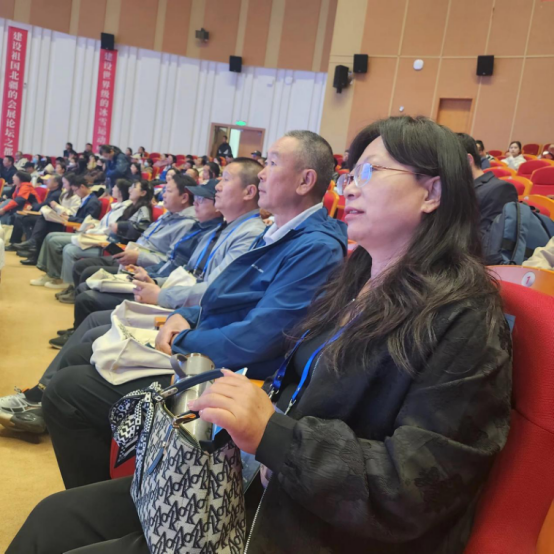From June 14 to 16, the 4th High-end Forum on Natural Culture was held in Arxan City, co-hosted by China University of Geosciences (Beijing) and the People's Government of Arxan City, with the participation of eight UNESCO Global Geoparks including the Alxa Branch of the Natural Culture Research Institute of China University of Geosciences (Beijing). Huang Tianbing, Director of the Alxa Desert UNESCO Global Geopark Administration, led a delegation to attend the forum.
This year's forum, themed "Extremely Beautiful Landscapes: UNESCO Global Geoparks in China," brought together experts, scholars, and representatives from 13 domestic Geoparks to discuss the protection, research, and utilization of Geoparks, sharing experiences in natural culture development, and explore the new roles and contributions of Geoparks in the context of ecological civilization construction. The participants aimed to chart a new path for the construction and management of Chinese Geoparks that meets international standards.
During the event, attendees engaged in in-depth discussions on topics such as "Research and Reflections on Geopark Construction" etc,. offering multi-dimensional perspectives on integrating natural culture with socio-economic development. These discussions contributed to promoting ecological progress, building a beautiful China, and advancing the modernization of harmonious coexistence between humans and nature.
In March 2021, the Alxa Desert UNESCO Global Geopark Administration signed a strategic cooperation agreement with China University of Geosciences (Beijing), establishing the Alxa Branch of the university's Natural Culture Research Institute. In recent years, the two parties have deepened collaboration in ecological civilization construction, talent cultivation, geoscience popularization, and international exchanges. These efforts provide theoretical and methodological guidance for the high-quality development of Global Geoparks, the protection of Alxa's ecological environment, the scientific preservation of geological heritage, and the modernization of harmonious human-nature coexistence.



